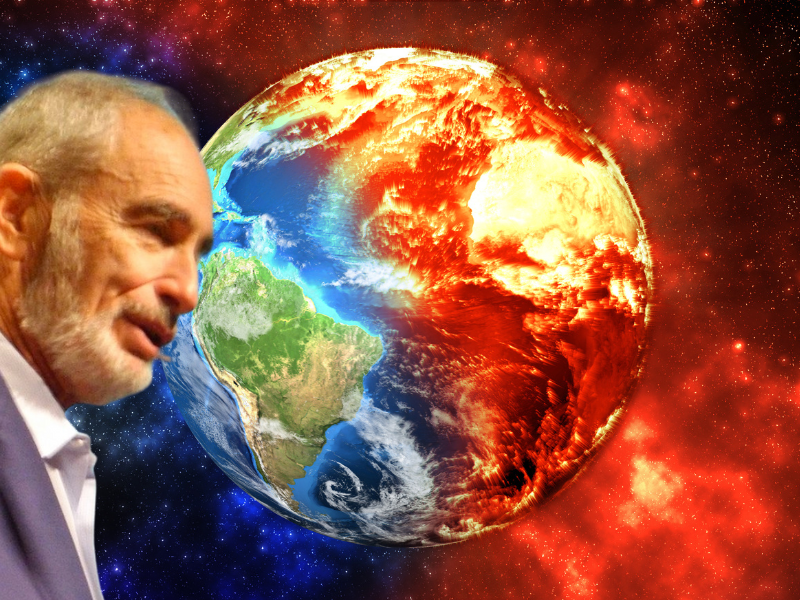Why has Ehrlich always been spectacularly wrong?
Paul Ehrlich has never been right about anything in his entire life. As he is now 90 years old, that’s saying something. On this year’s opening “60 Minutes” show, Ehrlich remains confident in the imminent end of the world, collapse of civilization, mass starvation, industrial pollution, climate change, and now … extinction.
Ehrlich, an entomologist by training, with a specialty in butterflies, thinks human beings are bound by the severe limits imposed by planet earth. Apparently he is completely unaware of such things as the domestication of fire, the invention of the wheel, and the development of counting. Is he even aware that us fleshly-skinned creatures have internal skeletons?
In his 1970 book, The Population Explosion, he said it was inevitable that there would be a mass die-in with hundreds of millions of people dying of starvation every year beginning in the 1970s. This has to rank as one of the most preposterous forecasts of all time, rivalling even the forecasts of Karl Marx.
- The world will end on Y2K
- The polar beer will soon be extinct
- We are running out of wood (or coal, or oil)
- Covid is 10,000 times worse than the ordinary flu
- Hundreds of millions of people will starve to death annually
- Jesus will return on October 22, 1844
- Capitalist countries are becoming more and more poor and desperate
- We are headed to a new ice age
- We are headed to accelerating warming
- We are headed both to a new ice age AND accelerating warming
Why has Ehrlich always been spectacularly wrong?
The simple reason that Ehrlich has been spectacularly wrong is that man is self-aware. Humans think and decide. They act. On the one hand, humans plus the earth is NOT a fixed total. Humans plus the earth equal a total that is not yet even imaginable. On the other hand, humans reproduce considering cost and benefit (at least when cost and benefit isn’t perverted by the government). We aren’t in a population explosion. We’re in a transition to a post-industrial revolution equilibrium.
Let us, for the moment, think the way Ehrlich thinks. He thinks any organism expands to the limits of its environment unless checked by a predator. Hence, in nature, every organism lives a precarious life, at the edge of subsistence, eating or being eaten, in a constant struggle. The world is NOT naturally in balance in the utopian sense; but, in the sense of the law of the jungle. Life is a war of all against all; where the more of your kind there are, the less there is for each of your kind, and where others of your kind are your enemy unless part of your relatively-small, cooperative group (such as your clan or tribe, and you can’t be too sure of them either).
I’ll let this thinking continue to include evolution. This thinking leads to gigantism, e.g., elephants, whales, dinosaurs, other creatures so large they don’t have a natural predator, whose numbers are only checked by the carrying-capacity of their environment. Yet, gigantism severely limits diversity, as a relatively small number of individuals come to dominate the great oceans and plains of the planet, driving lesser creatures into the crevices of the surface of the earth.
Man, by turning the earth into a garden, by regulating water flow, as well as air and water quality, by fencing-in the plains, rotating crops, herding cattle, developing inexpensive sources of energy and fertilizer, and by integrating productive activity on a global basis, makes life possible on a grander scale than the earth in its natural state – as miraculous as our planet is.
But, it doesn’t matter how demonstrably wrong is the pseudo-science of environmentalism. That thing is a religion and, so, isn’t subject to falsification.





